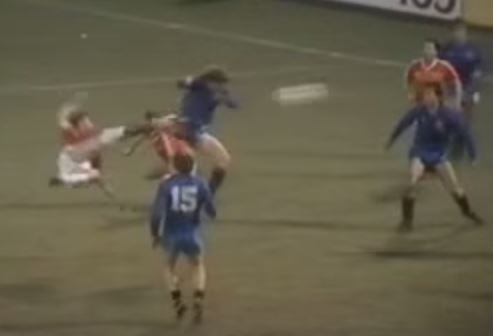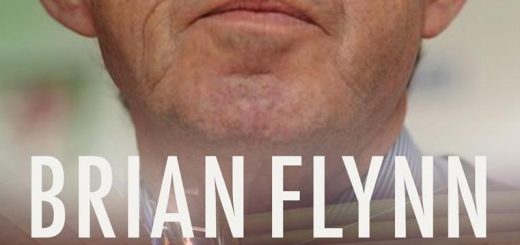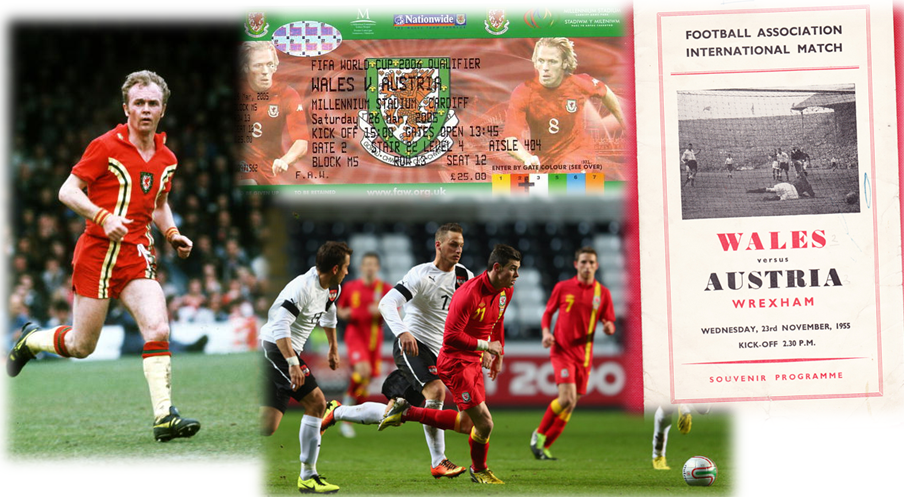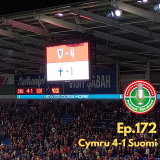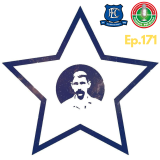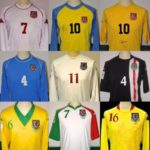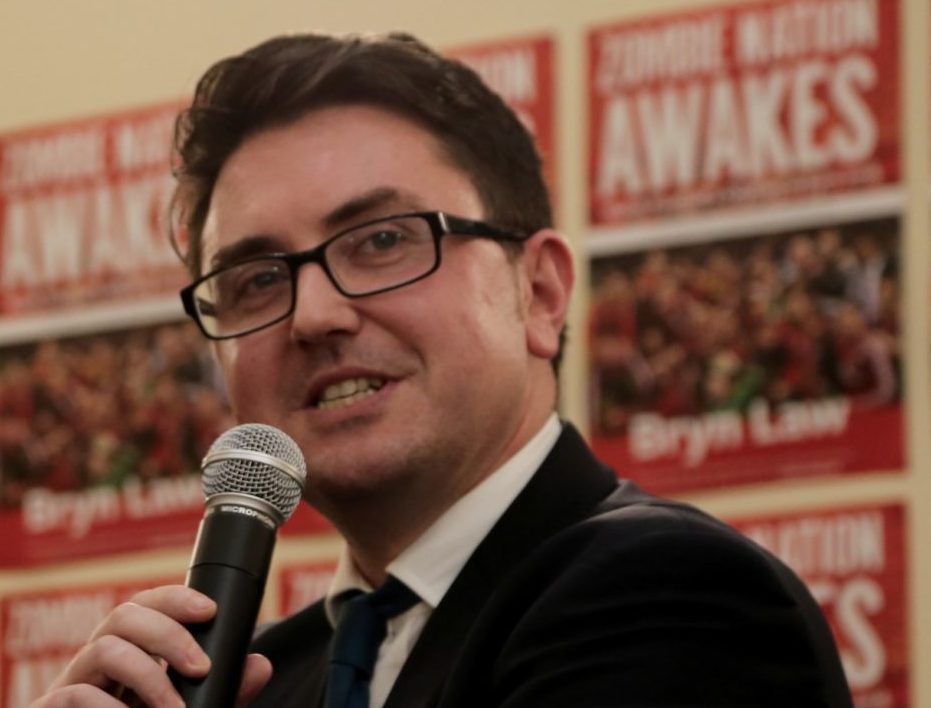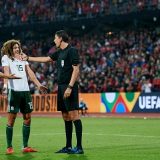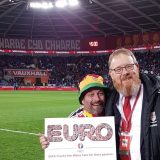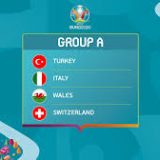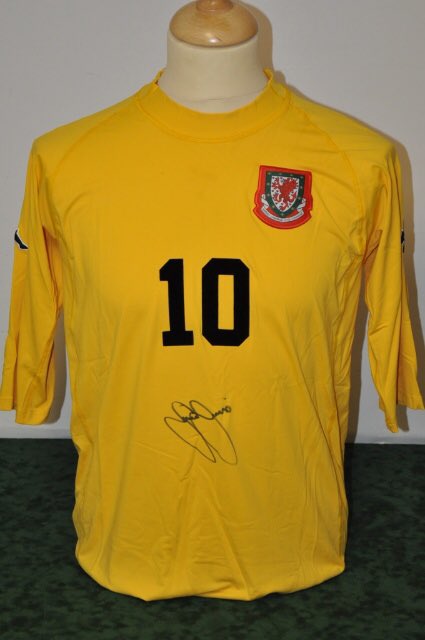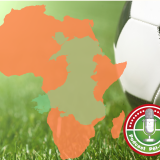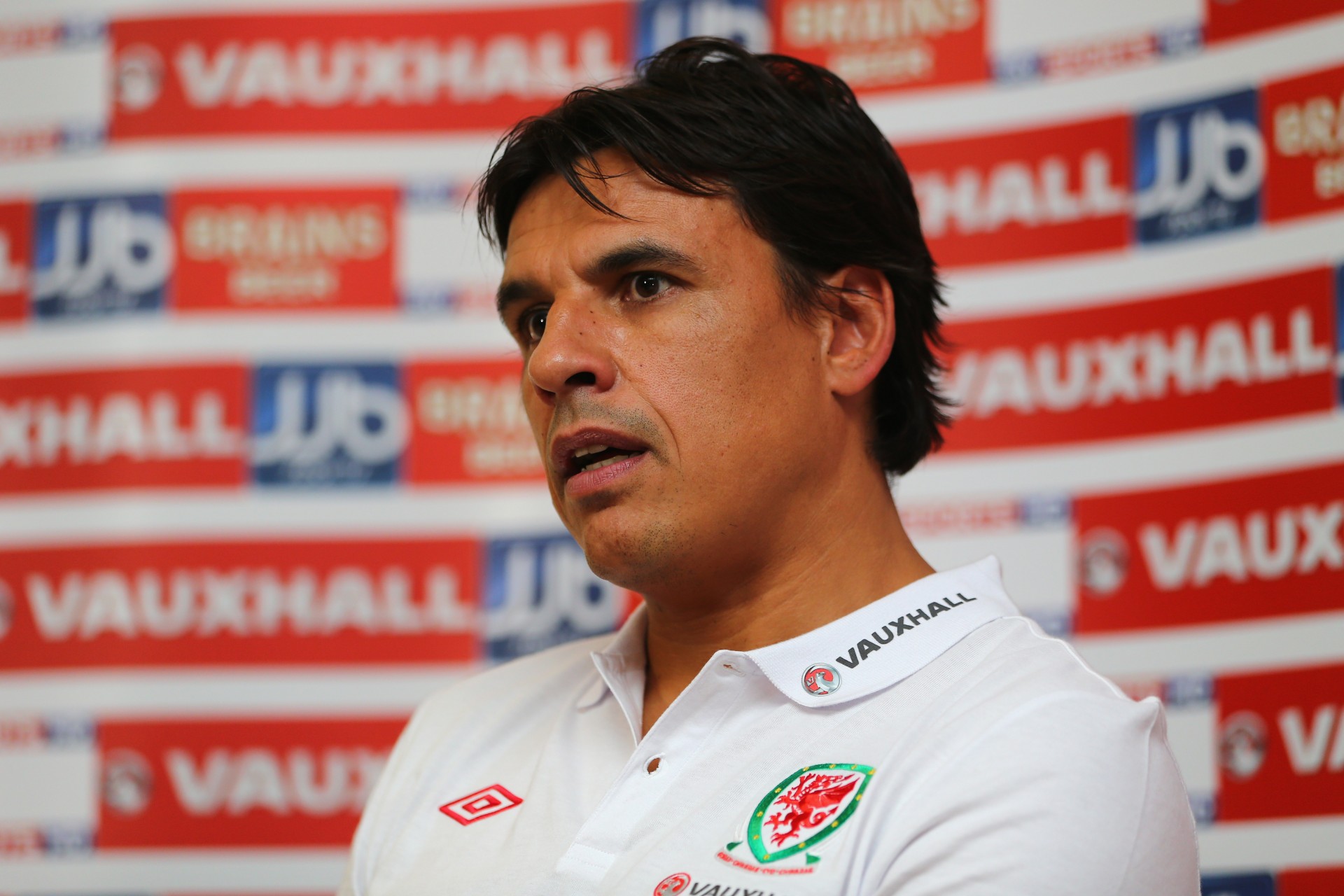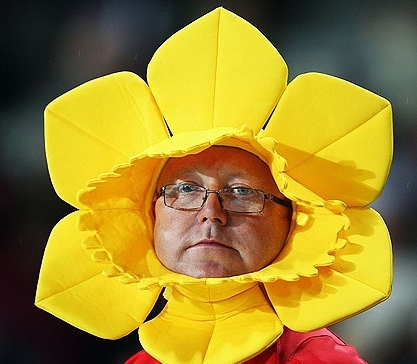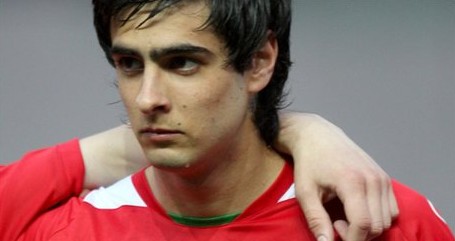Thirty Years a Wales Fan – the spark that lit a life-long love affair
Thirty years ago today Leon Barton became a Wales fan. On the 30th anniversary of the game here are his recollections of the game that cemented his allegiance…and that goal.
It’s all my Dad’s fault really, the bastard. And he’s English! …English bastard.
At some point in the March of 1985, he said ‘Wales are playing Spain in Wrexham next month – do you want to go?’ I’m not sure if I knew that Wales had a football team at the time. I might not even have been aware there was such a thing as international football. My first memory of watching England on TV was the knockout match vs. Paraguay at the ‘86 World Cup and that was over a year away. But I probably nodded or said something like ‘um.. okay’, or ‘yeah, wicked!’ (or whatever it was that wannabe-cool seven year olds said in 1985) as a I was already a football fan by that point.
My introduction to the game came age six, when I was taken to see Shrewsbury Town beat Manchester City 1-0 in the old second division. The mid-80’s Shrews are probably the best team in their history, and it wasn’t beyond comprehension that they might win promotion to the top flight. I suppose I became a bit of a Shrews fan as a youngster but never in a particularly committed way. Never had a shirt, or even a scarf, never had posters of Shrewsbury Town players on my bedroom wall. The classic ‘young boy falls in love with football’ story tends to be along the lines of ‘taken to the game by Dad, climbed the steps, looked out of the greenest grass I’ve ever seen, the roar of the crowd…blah, blah blah’.. y’know, all that stuff from the Alan Shearer advert. It was nothing like that for me. For a start, growing up in the countryside, I was used to seeing lots of green fields, so the pitch was no big deal. There were no steep stands at Gay Meadow, therefore no sharp intake of breath at looking down from on high. I’m pretty sure we were sat pitchside, so there was no step-climbing, and even when the Shrews were doing well in the second division crowds were small, so there was never much of a roar.
The 30th April ’85 was different. It was my first night game, and ever since I’ve preferred the experience of watching live football under lights. As I seem to have met about 50,000 people roughly my age who say they were there (even though the capacity of the Racecourse was only 25,000 at the time!), I can’t have been the only child in attendance, but I honestly don’t remember seeing any others. I’d never been in such an adult environment before. The sights, the sounds, the smells (more of that later), everything about it was utterly intoxicating. Like I said, I was already a football fan, but this was the night I truly fell in love with the game.
The build up had started several weeks before, for me on the morning of March 28th 1985, when Dad woke me for school, telling me the news that Wales had beaten Scotland at Hampden Park for the first time since the 1950s, with Ian Rush scoring the goal. ‘The game vs Spain is massive now. Win and Wales have an excellent chance of qualifying for the World Cup’.
Although Wrexham was still the nearest ‘big’ town, we were living in the Shropshire countryside at that point, having moved from the town’s Queens Park estate a few years earlier. On the evening of the match we parked in the grounds of the Maelor hospital where I was born, walking the short distance to the ground with the distinct sense of an atmosphere building, the noise of the gathering crowd increasing with every step, the smell of greasy burgers and frying onions getting ever stronger.
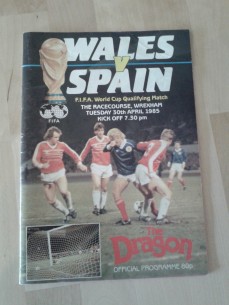 After buying a programme, which I still have and still treasure, we went to our seats in the Marston Stand/Tech End, opposite the Kop. When I think of the actual action on the pitch, memories of the first half are extremely sketchy. I can recall it being something of a battle though, and have a clear memory of a Spanish player rolling around on the floor, accompanied by whistles from the away fans. I would imagine every 50-50 tackle that the Wales players flew into would have been greeted rapturously by the crowd. It’s fair to say that British football was a bit more agricultural in the 80’s. I also have a vague recollection of a buzz in the crowd whenever former Wrexham favourite Mickey Thomas got on the ball. Although still only 30 at the time, he was perhaps already a bit past his best, but it’s always great to see the local hero returning to the ground where he made his name, and sadly his big mate and Wrexham FC’s greatest cult hero of all time Joey Jones was suspended. His place in the side was taken by a debutant, Belgium-born Londoner Pat Van Den Hauwe (who qualified via an arcane and now abolished rule allowing naturalized British citizens to play for any of the four ‘home’ nations). The man was nicknamed ‘Psycho’ so it’s not as if Joey’s absence would have lost us too much bite. I tend to imagine manager Mike England’s team talk being along the lines of ‘get stuck in lads, these foreign fancy dans don’t like it up ’em’ (if England is reading this and thinks these comments unfair, please get in touch for an unreserved apology…). Having lost the first two games in the group, away to Iceland (1-0) and Spain (3-0), it was win or bust by this point after all.
After buying a programme, which I still have and still treasure, we went to our seats in the Marston Stand/Tech End, opposite the Kop. When I think of the actual action on the pitch, memories of the first half are extremely sketchy. I can recall it being something of a battle though, and have a clear memory of a Spanish player rolling around on the floor, accompanied by whistles from the away fans. I would imagine every 50-50 tackle that the Wales players flew into would have been greeted rapturously by the crowd. It’s fair to say that British football was a bit more agricultural in the 80’s. I also have a vague recollection of a buzz in the crowd whenever former Wrexham favourite Mickey Thomas got on the ball. Although still only 30 at the time, he was perhaps already a bit past his best, but it’s always great to see the local hero returning to the ground where he made his name, and sadly his big mate and Wrexham FC’s greatest cult hero of all time Joey Jones was suspended. His place in the side was taken by a debutant, Belgium-born Londoner Pat Van Den Hauwe (who qualified via an arcane and now abolished rule allowing naturalized British citizens to play for any of the four ‘home’ nations). The man was nicknamed ‘Psycho’ so it’s not as if Joey’s absence would have lost us too much bite. I tend to imagine manager Mike England’s team talk being along the lines of ‘get stuck in lads, these foreign fancy dans don’t like it up ’em’ (if England is reading this and thinks these comments unfair, please get in touch for an unreserved apology…). Having lost the first two games in the group, away to Iceland (1-0) and Spain (3-0), it was win or bust by this point after all.
The opening goal was scored just before half time, Ian Rush, sharp in the box as ever, punishing an awful mistake from legendary Spanish keeper Luis Arconada, who looked certain to collect a header from his defender but instead allowed the ball to trickle through his legs. It was to be Arconada’s final game for Spain, obviously unlikely to be a happy memory for him (incidentally, the great Neville Southall bowed out after being subbed at half time in a 6-4 defeat vs Turkey. His replacement Paul Jones was to leave the international stage following a horror show in going down 5-1 at home to Slovakia… seems keepers don’t get to go out at the top very often). Thing is, I can only describe that goal because I’ve seen the YouTube footage. I have no memory of it happening at the time, and most likely didn’t even see it. As it was scored at our end, my view was probably blocked by the people in front (I was about 20 inches high, so this wasn’t hard)
Until the moment that everyone who remembers this game can recall and rhapsodize about for hours (I’m coming to it!) my strongest memory of the evening actually comes from half time, and it’s the overwhelming smell of rancid booze-infested piss as I took half time relief in the trough. Jesus, it was bad. I can still smell it now. And I still can’t believe my Dad let me drink so much lager when I was only seven (boom boom!).
It’s ‘that’ goal of course that everyone remembers. In the 53rd minute a free kick was launched into the box by Peter Nicholas. It was met by a Spanish head, not powerfully, but as the ball looped up off the turf on the edge of the penalty area there seemed to be little danger. Mark Hughes of course, had different ideas. To hit a slowly looping, spinning ball that hard from 25 yards, to get his oak trunk-like legs up that high, to have the sheer nerve to even try and score a goal like that from there…I still don’t know how he did it. ‘I thought the ref had blown for a foul so I just swung a leg at it’ he declares in the interview that accompanies the YouTube clip, which I have watched roughly 7000 times…you think I’m joking? The greatest Welsh goal of all time and the kind of thing the internet was invented for. In fact, let’s all watch it again together now.
‘Did you see that?!’ said the bloke sitting next to my Dad. The type of goal which gets strangers talking to each other.
Looking at the programme, I saw Hughes’ birthplace listed as Ruabon. That was just down the road! He immediately became my football hero. Neville Southall (possibly the best keeper in the world at the time) was listed as ‘born Llandudno’…I’d been on day trips there! Liverpool megastar Ian Rush was born in St. Asaph…we’d driven through there! Captain Kevin Ratcliffe was born in Mancot- a quick look at a road map (maps, believe it or not, were another early passion of mine) showed that wasn’t very far north of where we lived either. The superstars of that Welsh team were all fairly local heroes. By contrast, a glance at my Panini sticker album revealed that England’s biggest stars were from places I’d never even heard of, let alone been; Glenn Hoddle – Hayes (where?), Bryan Robson – Chester–le-Street (sounds French ..is that even in England?) The programme also stated Hughes and Rush were the most exciting strike pairing in international football, and at that time they very probably were. Both grew up less than twenty miles from where I was born. This blew my tiny little mind.
The third goal was an example of just how good the partnership was. In the 86th minute a header was hooked on by Hughes straight into Rush’s path. The Liverpool man was perfectly positioned on the shoulder of the last defender (as usual), outpacing him with ease, before nonchalantly slotting the ball under Arconada. This was a year into the two year period when either one or the other scored whenever they played together, and in the mid-80s Wales simply didn’t lose when they were both available and partnered in attack.
Final score: Wales 3 Spain 0. Sounds mad, doesn’t it? Although the Spanish team of the 1980’s was not of the world-dominating vintage of their 2008-2012 descendants (they lost to Northern Ireland at their own world cup in 1982 after all) it was still Spain’s biggest competitive defeat until Brazil beat them by the same score in the 2013 Confederations Cup final.
Qualification was back in our hands. The Scots still had to go to Iceland, a draw there would mean only needing a point from the home tie with Scotland to book a (at the time very, very winnable) play off vs the winners of the Oceania section. That was looking the likely target with the game in Reykjavik still locked at 0-0 going into the final five minutes. Then Jim Bett scored to make the Scottish task a whole lot easier. For us it was win or bust again.
There were major discussions over where the game should be played, Kevin Ratcliffe, in his captain’s programme notes for the Spain game, seemed to make the case for staying in the north; ‘We all enjoy playing at the Racecourse. There’s a terrific atmosphere for a big match. No disrespect to Cardiff, but the atmosphere is better here than at Ninian Park’. But not for the first time, the FAW ignored the wishes of the players, financial considerations taking precedence. At first a deal was agreed with the Welsh rugby union to take a Wales football game to Cardiff Arms Park for the first time, but the Heysel stadium tragedy, in which 39 fans lost their lives, lead to a change of mind. ‘It is our view that the kind of confrontation which we saw in Brussels has absolutely no place in the sporting world’ said Welsh Rugby Union secretary Ray Williams. Still, the game would be played in Cardiff – the extra 12,000 or so capacity giving Ninian Park the nod over the Racecourse.
This match was to be my introduction to Welsh football heartbreak. Watching at home on ITV, in the first half Wales tore into the Scots so ferociously that there only seemed to be one outcome, and when Mark Hughes latched on to a low cross into the penalty area from Peter Nicholas to make it 1-0, we seemed to be heading for Mexico (or at least Australia for a play off tie) Wales were well on top for the first hour or so of the game, and even with Scotland coming back into it near the end, the team in red still looked in control. But then, the godawful moment, with roughly ten minutes to go when a Scottish shot was blasted from less than two yards against David Phillips’ arm. There was no way it could possibly have been described as a ‘deliberate handball’, no way the referee should ever have done anything but wave play on, but he didn’t. Eight years on from Joe Jordan at Anfield, history repeated itself, with Scotland once again unjustly awarded a crucial penalty vs Wales in the battle for a world cup place. Substitute David Cooper scored from the spot, and the Scots never looked like giving up the draw they needed in the time remaining. The big story of the night ended up being the very sad death of Scotland manager Jock Stein from a heart attack at the very end of the game but as a seven year old I really had no idea who Jock Stein was, had no clue about any of his amazing managerial achievements. I was simply wrapped up in grief and despair at my heroes not getting to the World Cup.
There was still a small glimmer of hope –should Iceland gain at least a draw in their game in Spain two weeks later, then the Spanish would be out, leaving Scotland to top the group, and Wales in the play off spot. Hope was increased when Iceland took the lead in the 35th minute, but it was to no avail, Spain running out 2-1 winners, Wales once again left to curse the small margins going against them, as typified by all but the last qualifying campaign during the entire decade of the ‘80s.
So our British rivals went to the world cup instead (again) and stunk the place out (again), losing to Denmark and West Germany and failing to break down a Uruguay team reduced to ten men after 53 seconds, playing out a tepid goalless draw in their final game. What a waste of a place.
Thirty years on, we’re still waiting for a qualification, although there are genuine grounds to believe that could change in a few short months time.
Looking at the stats from the Spain game, it’s striking that thirty years apart, our most recent victory in many ways mirrors what happened three decades ago. A goal just before half time (always a great time to score as the pundits keep telling us), a memorable decisive goal at the start of the second half, followed by a third with the game heading towards the end. Two goals by our most famous and feared player, one by the second most, with an assist by the latter for the former on the third. Although playing in completely different positions, I guess Gareth Bale and Aaron Ramsey are the Rush/Hughes of modern times – the goalscoring superstars helping a new generation of Welsh kids fall in love with their national football team. Heartening to see.
It’s a horrifying thought, and one that I have tried to suppress, but I suppose it’s entirely possible that if I’d been taken to see a famous England victory at Wembley at such an impressionable age, I might have become a fan of the Three Lions, with the land of my birth meaning nothing to me in a footballing sense. I genuinely shudder at the idea. Wales may not be the land of my fathers -Lancashire is – but since the 30th April 1985 it’s absolutely been the land of my football team.
And deep down, despite all the heartache and frustrations, I wouldn’t want it any other way.

